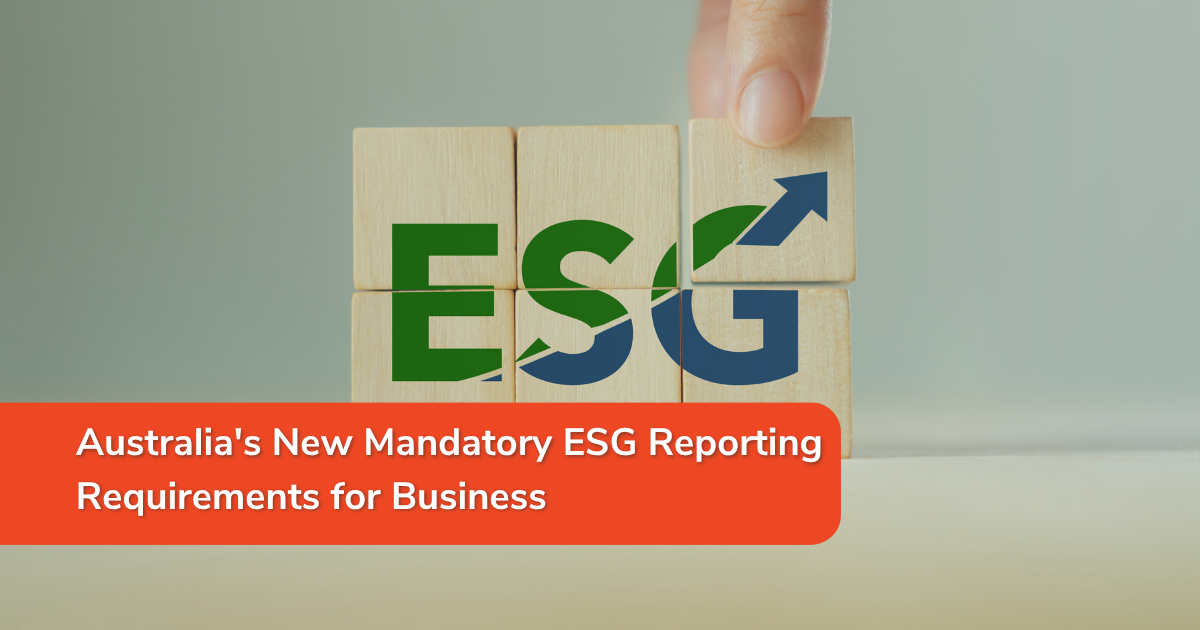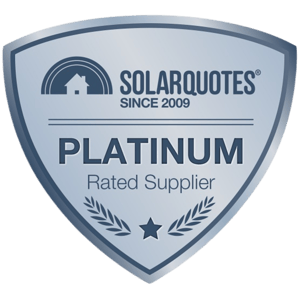Australia's New Mandatory ESG Reporting Requirements for Business

Australia is entering a new era of corporate accountability with the introduction of mandatory ESG (Environmental, Social, and Governance) reporting requirements for businesses. These changes, which align Australia with international reporting standards, were rolled out in July 2024 and are now actively impacting thousands of companies across the country.
What Is ESG Reporting?
ESG reporting involves disclosing how a business is managing its environmental impact, social responsibilities, and governance practices. This includes carbon emissions, energy use, supply chain ethics, board diversity, and more. ESG has become a crucial benchmark for investors, regulators, and consumers alike.
Who Is Affected?
The new framework is being implemented in stages:
-
Group 1 (since July 2024): Large listed and unlisted companies with over 500 employees and over $1 billion in assets or turnover.
-
Group 2 (from July 2026): Companies with over 250 employees and over $500 million in turnover or assets.
-
Group 3 (from July 2027): Companies with over 100 employees and over $250 million in turnover or assets.
Over time, more businesses—especially those aiming for government contracts or capital funding—will need to voluntarily report ESG performance.
Why Does It Matter?
Mandatory ESG reporting is more than a compliance requirement—it’s a powerful strategic lever for business growth and resilience. By proactively managing their environmental impact, businesses can not only reduce operational risks and align with evolving regulations, but also unlock new value. This includes enhancing brand reputation, attracting ESG-focused investors, improving stakeholder relationships, and opening doors to government contracts and sustainable financing. Companies that act early are also more likely to gain a competitive edge as sustainability becomes a core criterion in business evaluations.
How Does This Relate to Smart Energy Solutions?
With environmental impact being a key ESG pillar, energy consumption and emissions reporting will be closely scrutinized. That’s where Smart Energy Answers can help.
Businesses that invest in clean energy solutions—like solar panels, solar battery storage, EV charging stations, and energy management systems—will be better positioned to:
-
Lower operational emissions (Scope 1 and 2), reducing their carbon footprint
-
Access solar battery rebates such as the Federal Battery Rebate and NSW Battery Rebate
-
Improve ESG reporting scores through measurable reductions in energy usage and emissions
-
Meet procurement criteria for ESG-conscious customers and governments
How Smart Energy Answers Supports ESG Goals
At Smart Energy Answers, we’ve helped hundreds of commercial clients reduce their emissions through:
-
Tailored solar energy systems
-
High-efficiency batteries like the Tesla Powerwall 3, Sigenergy, and Sungrow
-
Monitoring tools to track and report savings and carbon offsets
-
Guidance on rebates and incentives like the Cheaper Home Batteries Program
We don't just install solar—we help businesses build a cleaner, compliant, and future-ready energy profile.
Final Thoughts
Australia’s new ESG reporting mandates represent a turning point in how businesses approach sustainability. Whether your company already falls under the current requirements or is preparing for future phases, now is the time to take control of your environmental impact.
Get a head start on ESG compliance and unlock long-term energy savings with Smart Energy Answers.
👉 Contact us today for a free commercial energy consultation.
%20(1).png?width=265&height=96&name=www.smartenergyanswers.com.auhs-fshubfsSmart%20Energy%20Answers%20Logo%20(HIRES)%20(1).png)

.png?width=514&height=121&name=Tesla%20Powerwall%203%20(new).png)








.webp?width=300&height=180&name=sigenergy-gold-installer-300x180%20(1).webp)